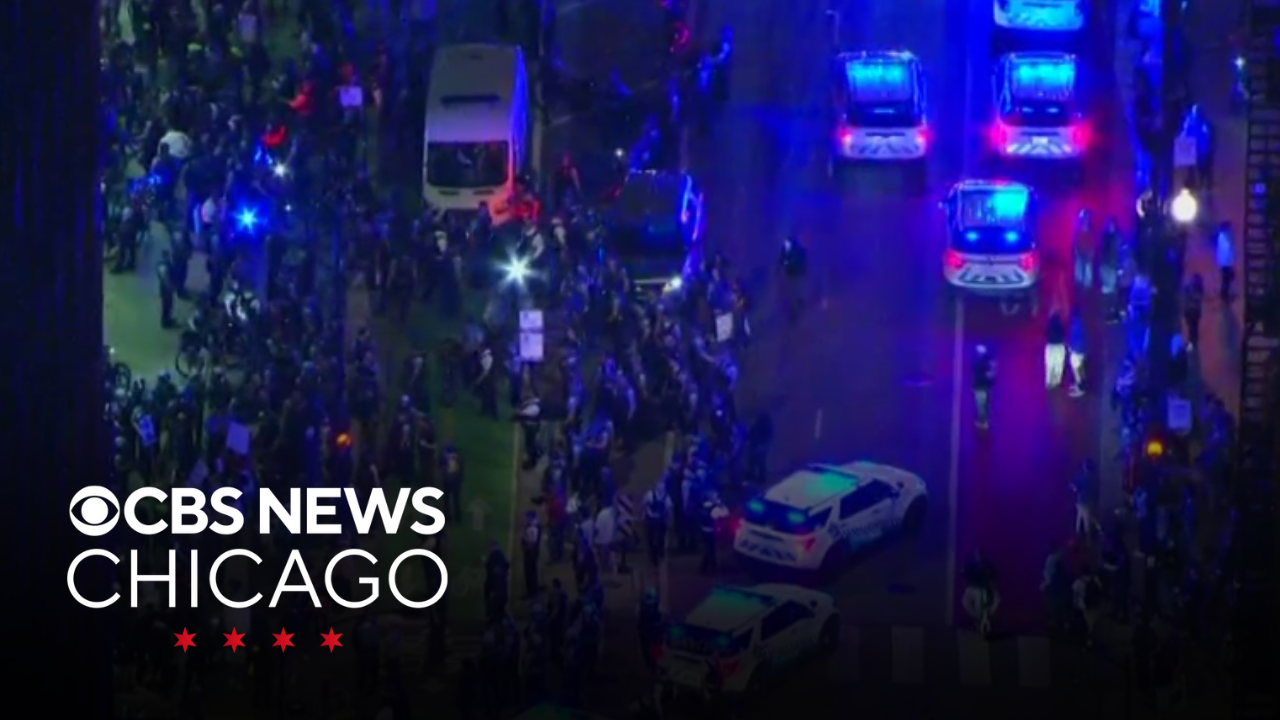Mayor Brandon Johnson calls controversial "snap curfew" ordinance "lazy governance" ahead of possible vote
With a potential vote looming on a controversial ordinance that would allow Chicago police to declare a "snap curfew" on as little as 30 minutes' notice in an effort to curb teen takeovers, Mayor Brandon Johnson on Tuesday offered his most pointed criticism to date on a measure he dubbed "lazy governance."
"We're debating something that doesn't work. Why are we even debating it?" Johnson said.
A final City Council vote on the "snap curfew" ordinance was postponed last month, and the measure could be called for a vote on Wednesday.
Johnson repeatedly has said he has concerns the proposal is unconstitutional, and on Tuesday said, "I think it's lazy governance, quite frankly."
"It places too much pressure on law enforcement. I continuously say that we cannot just simply rely upon policing alone. We need people to help my administration do the things that work. When we invest in people, violent crime goes down," he said. "We cannot afford lazy governance, and then we just wash our hands, absolve ourselves of any responsibility, and say, 'Police, you do it.' That is antiquated. That form of governance is dead, and should remain dead."
The proposed ordinance, sponsored by Ald. Brian Hopkins (2nd), would give Police Supt. Larry Snelling the authority to declare a temporary curfew anywhere in the city with at least 30 minutes' notice when mass gatherings are expected or underway, and there is reason to believe they could result in criminal activity or otherwise pose a risk to public safety.
Supporters have said the ordinance would allow police to break up big crowds that have led to violence and property destruction at some teen takeovers.
But Johnson said police already have the power to issue dispersal orders when they spot large gatherings that become disruptive or a danger to the general public, and that they can arrest people for committing crimes at such gatherings without relying on power to declare temporary curfews.
According to published reports from WBEZ Public Radio and WTTW-TV, Snelling told a federal judge overseeing the federal consent decree mandating sweeping reforms at CPD that , and even if granted the authority,
"We didn't ask for it. The superintendent didn't ask for it. No one in my administration or in my Police Department has asked for a curfew reduction. In fact, all the evidence points in the opposite direction, that there's no evidence that curfews prevent or lower incidents of this magnitude," Johnson said.
Noting that shootings, murders, and robberies all have dropped significantly over the past year in Chicago, Johnson said the City Council should be focusing on addressing the causes behind teen takeovers that turn violent, rather than simply relying on more policing.
"We're moving in the right direction. Why not just work with my administration to continue to do the things that work versus these make-believe, lazy, sloppily put together ordinances that work to just absolve people of having to do the real hard work?" he said. "We have to stop as a city falling to some of the most ridiculous, remedial forms of governance. It has not worked. And now we're doing stuff that works, and then they want to come up with another idea that has not worked. What sense does that make?"
At last month's City Council meeting, Ald. Jason Ervin (28th) and Ald. Andre Vasquez (40th) teamed up with 15 other alderpeople to use a parliamentary maneuver to block a final vote on the "snap curfew" ordinance until Wednesday's meeting at the earliest.
While the ordinance could still pass even if all 17 of those alderpeople hold firm and vote against it on Wednesday, the measure's opponents would have enough votes to uphold a possible veto from Johnson. It would take at least 34 of the council's 50 members to override a mayoral veto.
Ervin originally was a co-sponsor of the ordinance, but pulled his support last month, after a provision was removed that would have required both Snelling and the city's deputy mayor of community safety to sign off on any snap curfews. Instead, the ordinance now up for a vote would only require Snelling to consult the deputy mayor before enforcing snap curfews, but the final decision would be solely up to the superintendent.
"This goes above and beyond the original proposal," Ervin said last month. "This gives the Police Department total discretion as to when and how this will be administered. Unfortunately, in that set of circumstances, I cannot support this ordinance as it stands today."
Youth advocates from Good Kids Mad City, Communities United, and other community groups rallied at City Hall on Wednesday in opposition to the snap curfew proposal.
They called on alderpeople to vote no and support a youth-led alternative known as the Peace Book Ordinance, which seeks to increase investment in youth-led violence prevention programs. It also would employ youth peacekeepers, create neighborhood-based and citywide peace commissions, and create a "Peace Book" guide of resources for de-escalation and violence prevention tactics.





